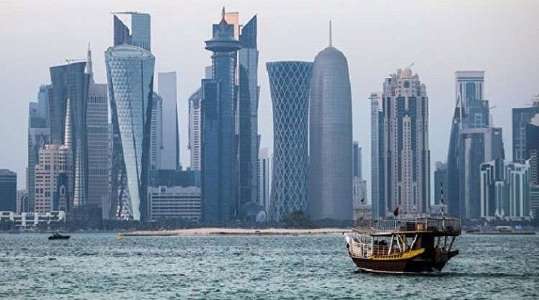
The International Monetary Fund (IMF) expects the Qatari economy to grow by 2.6 percent in 2018, indicating that Qatar's economy is still resilient and can deal with the immediate economic and financial impact of the current Gulf crisis. According to the fund, the state of Qatar's fiscal situation is continuously improving, with the fiscal deficit falling to 6% in 2017, revealing that public debt (estimated at 54% of GDP at the end of 2017) remains at a sustainable level, though the current account is improving steadily as oil and gas prices rise. According to the IMF, the Banking Sector remains fine overall, given the high asset quality and strong capitalization level, with a 15.4% capital adequacy ratio, a 1.6% return on assets and a low NPL of 1.5%. According to the fund, despite the decline in the level of reserves with banks since 2015, liquidity levels remained generally comfortable, with the ratio of liquid assets to total assets of 27.3 percent. The Fund called for the importance of wage reform to reduce the gap between public and private sector wages. International Monetary Fund supported the efforts of the Qatari authorities to promote economic diversification and encourage private sector development, noting that overall inflation remains precarious due to lower rental prices. The real estate price index decreased by 11% in 2017 following a cumulative increase of 53% during the period 2013 - 2016, because of increased supply of new properties and lower actual demand. Inflation is expected to reach its highest level of 3.9 percent by the end of 2018 in case VAT is applied, but will fall back to 2.2 percent on the medium-term.
